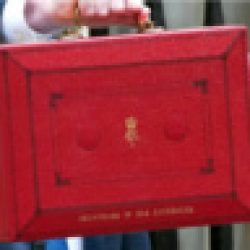The chancellor, Philip Hammond, has delivered his first budget, with expected growth on the rise from 1.4% to 2% for 2017. Here are some of the key points mentioned.
Personal Taxation
The main rate of class 4 national insurance contributions for the self-employed was announced to be increasing from 9% to 10% in April 2018 and up to 11% in April 19. However due to the public outcry about this proposed change, the increase to Class 4 National Insurance has scraped and will not be implemented this Budget.
Class 2 National Insurance, a separate flat rate contribution paid by self-employed workers making a profit of more than £5,965 a year, is to be scrapped as planned in April 2018. No changes to National Insurance paid by the employed and employers, or to income tax or VAT. Personal tax-free allowance to rise as planned to £11,500 this year and to £12,500 by 2020.
Business
The government is setting aside £435m for firms affected by the increases in business rates, including £300m hardship fund for the worst hit. Pubs with a rateable value of less than £100,000 to get a one-year £1,000 discount on the rates they would have paid. Rate rises for businesses losing existing relief will be capped at £50 a month.
A £820m tax avoidance clampdown, including action to stop businesses converting capital losses, into trading losses and the introduction of UK VAT on roaming telecoms services outside the EU. Privately owned SMEs to get an extra year to prepare for tax digitisation and quarterly reporting.
Alcohol, tobacco and fuel
No increases in alcohol or tobacco duties on top of those previously announced. A new minimum excise duty on cigarettes based on a packet price of £7.35. Tobacco will rise by 2% above Retail Price Index (RPI) inflation with a packet of 20 cigarettes costing 35p more.
Duty on beer, cider, wine and spirts will increase in line with RPI inflation. This will equate to a 2p increase on a pint of beer, 1p increase on a pint of cider, 36p increase on a bottle of whisky and 32p increase on a bottle of gin. Fuel duty frozen for a further year. Vehicle excise duty rates for hauliers and the HGV road user levy frozen for another year.
Pensions and savings
A reduction in the tax-free allowance on share dividends from £5,000 to £2,000. The measure, affecting small business owners and investors, will come into force in April 2018, raising £2.63bn by 2021-2022. Dividend income paid on shares held in a stocks and shares ISA will remain tax free. Measures to tackle abuse of overseas pension schemes.
Education (England only)
£300m to support 1,000 new PhD places and fellowships in STEM (science, technology, engineering and maths). Free school transport is to be extended to all children on free school meals who attend a selective school. Upgrade fund of £216m for existing schools. £320m funding for 110 new free schools and grammar schools. An increase in the number of hours of training for technical students aged 16-19 by more than 50%, including a high quality, three-month work placement.
Health and Social Care
£100m to place more GPs in accident and emergency departments for next winter. An Additional £325m to allow the first NHS Sustainability and Transformation Plans to proceed. An extra £2bn for social care over the next three years, with £1bn available in the next year. Long term funding options to be considered but so-called “death tax” on estates ruled out. Most sugary soft drinks to be taxed at 24p per litre as part of plans to reduce childhood obesity.
Housing/Infrastructure/Transport/Science
Transport Spending of £90m for the north of England and £23m for the Midlands to address pinch points on roads. £690m competition fund for English councils to tackle urban congestion.
£270m for new technologies such as robots and driverless vehicles. £16m for 5G mobile technology and £200m for local broadband networks. £250m in funding for the Scottish government, £200m for Welsh government and £120m for Northern Ireland executive.
Women
New funding totalling £20m to support the campaign against violence against women and girls. A further £5m committed to celebrate the centenary of women first getting the vote, and to educate young people about its significance. Funding of £5m to support people returning to work after a career break.
If you have any questions regarding these changes, contact us for further advice.
Info provided by: BBC News
Picture provided by: Flickr
